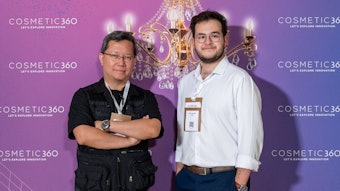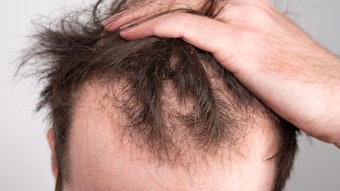Recently distrust from the scientific community has been vocalized about a process intended to keep honest scientists honest: peer-review. In fact, “I Hate Your Paper” was the snippy title given to a recent article debating the value of this system for scientific articles. Although not perfect, this measure is taken by science publishers to maintain standards and credibility.
"How do you feel about peer review in scientific journals?" Rachel Grabenhofer, editor of Cosmetics & Toiletries magazine, asked readers in her recent editor's note. "We practice this at C&T magazine but I wonder if you find value in it?" Here's how readers responded on a LinkedIn group discussion.
Respondant A: There IS some value in the peer review process but it is by no means infallible, as it is only as good as the actual reviewers employed in each case. ... However, I would argue that the majority of papers are well-reviewed, and that it is certainly better than not having any form of control of the content.
Respondant B: I'm a fan of peer review and believe that it's necessary for any serious scientific publication. I agree that it is not infallible but it's better than not having anything.
Respondant A (additional comment): One thing I missed in my previous comment is the word "independent." It is important that the reviewer(s) is completely independent of the authors, for obvious reasons.
Respondant C: As a frequent reviewer of scientific articles submitted both to trade journals and Medline listed publications, I feel the review process to be of great value. I agree to the points made above. It is the role of the editor to ensure that papers are not sent to 'competing' parties that can prevent or retard publication because of competing interests but at the same time, as a scientist you have to be open and honest enough to allow others to publish their findings.
We have had that ethical discussion before in the "Is cosmetic science really bad?" series before already. Scientists of all sorts of science and species often also have big egos. Occasionally the review process goes wrong. ...That is why in a proper review, at least two reviewers are involved. When an editor gets two conflicting responses, the paper should be sent to a third reviewer. This should prevent such mistakes (or personal preferences of a reviewer) to a large extent. One aspect, however, never stressed in the review process is the question of whether the submitted article fits the (scope of the) journal to which it is submitted. And likewise, reviewers should adapt their level of reviewing to the publiction concerned.
One's award-winning article may still be rejected by Science or Nature. Controversial papers [sometimes have an issue of getting past the reviewers because they go] against the current opinion. ... Reviewer's score lists should be reviewed on a regular basis to stay in line with the way of writing, the scope of the publication, or simply to keep reviewers on track and alert. Questions that were relevant yesterday may no longer be relevant today, and new questions may pop up.
Respondant D: I agree on most [of the above] points. The sole aspect I would not like to see is "who reviews who." It may well be that reviewers are not in the hundreds and people will start to see connections and/or advantages where there are none. ...I will nonetheless add that C&T magazine should proceed with this procedure to not lose credibility [amongst the] other publications or outside of the cosmetic domain...[in fact here], it is crucial since scientists outside of cosmetics [at least, in my view] unfortunately often believe that this field is not rigorous or not even scientific at all.
Grabenhofer: Many thanks to all for your comments. In the end, I guess the editor must be sure to ask the right reviewers the right questions to determine if the content is valid and relevant.
To add further comments on this subject or any others related to cosmetics and personal care R&D, join Cosmetics & Toiletries magazine's LinkedIn group discussion.










